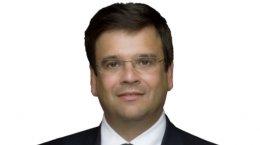Private equity deals are likely to warm up in 'frontier' Asian markets such as Indonesia and Vietnam as firms worry about prices getting too high in the hot markets of China and India.
Private equity investments in Asia accelerated in the first half of 2011, with the growth markets of China and India continuing to drive investment.
But increasingly, limited partners -- the investors in private equity funds -- are getting selective about which firms they invest in because the industry faces a shrinking pool of capital globally.
"For private equity firms who prefer to write large equity cheques, finding opportunities to invest in good companies at the right valuation is a challenge," said Peter Plakidis, head of the financial sponsors group for Asia at Deutsche Bank.
"Sponsors are increasingly looking at other growth markets where there are strong domestic consumption stories," he added.
Southeast Asia is an increasing focus of attention, as private equity develops new markets for the money that continues to flow into Asia from Europe and North America.
Total private equity-backed M&A activity in the first half soared 79 per cent to $18.1 billion from a year ago. China accounted for 20 per cent of Asia's private equity buyout transactions, with $3.7 billion from 45 deals, but India was the busiest market with 61 deals worth $3.3 billion.
With a lot of unused capital already in the region to invest and an abundance of local funds in China willing to pay high-entry multiples, competition for assets is intense.
KKR and Co LP completed Vietnam's largest ever private equity investment in April, agreeing to buy 10 per cent of Masan Consumer Corp for $159 million.
In Vietnam, as elsewhere in Southeast Asia, private equity is betting on strong consumer growth to drive returns.
Still, an outright buyout deal in several Asian countries is challenging as shown by Taiwan's decision to block the $1.6 billion KKR-led buyout of Yageo Corp. That was the biggest buyout in Asia this year.
That is not stopping global buyout funds from chasing new deals. Carlyle is close to its maiden Southeast Asia investment, in the form of a 25 per cent stake in Indonesian consumer firm GarudaFood for about $200 million.
Fee Pressure
While funds continue to pour into the region, LPs globally are cautious about handing out money to buyout shops and they are putting pressure on managers to cut the relatively high management fees earned by buyout funds in Asia.
Even global firms with strong track records are refining fee structures to match investor preferences, particularly if they are looking to raise bigger funds.
Bain Capital's latest pan-Asia fund is targeted at up to $2 billion, double the first Asia fund raised in 2007, and the firm is offering new fee structures to attract LPs.
Bain traditionally has charged investors a 2 per cent management fee and 30 per cent carried interest, or profit, on its funds. But for its second Asia fund, LPs can choose to pay a 1 per cent management fee if they allow Bain to carry 30 per cent of the profit from deals, or a 2 per cent management fee if Bain takes 20 per cent of the profit. Bain's new fund is targeted at China, Japan and India.





